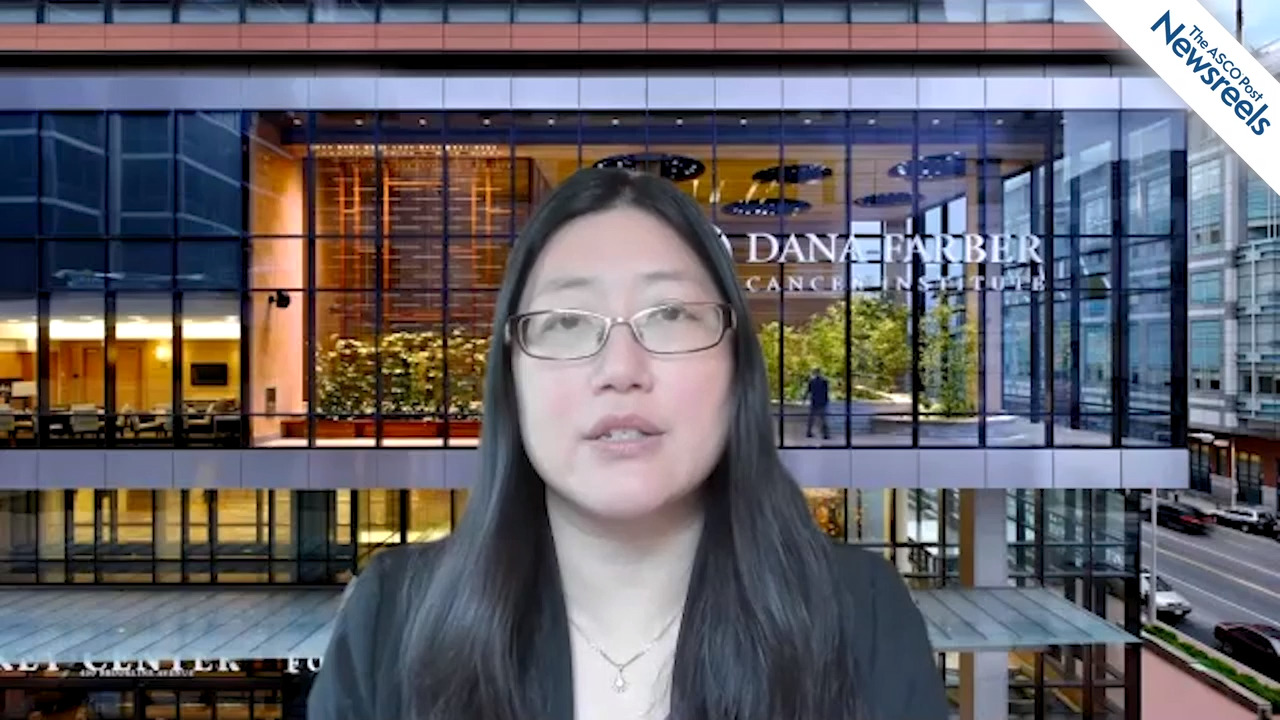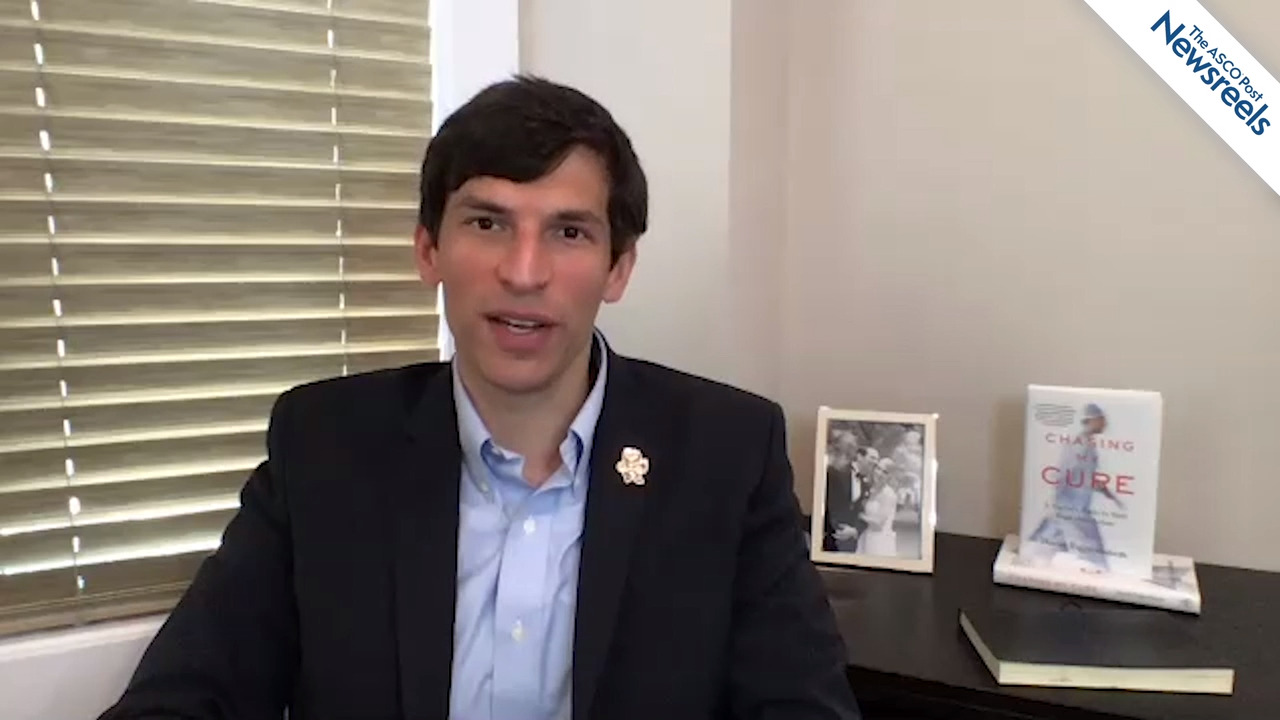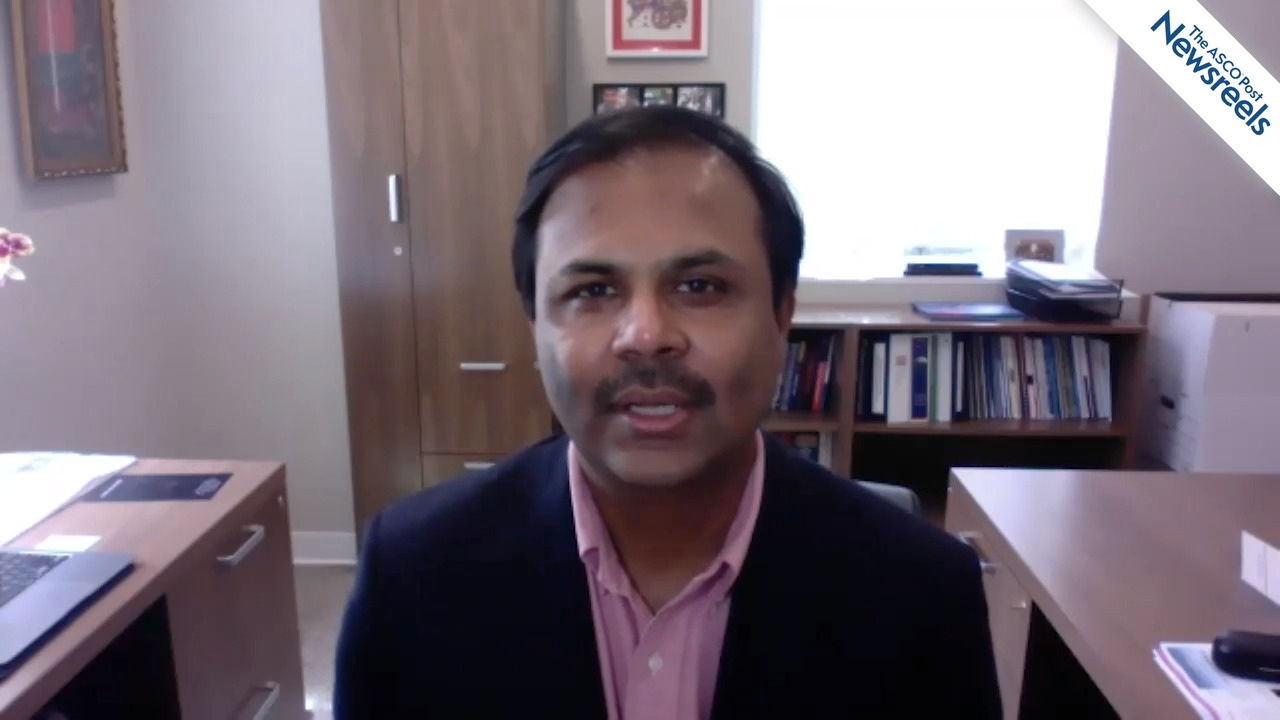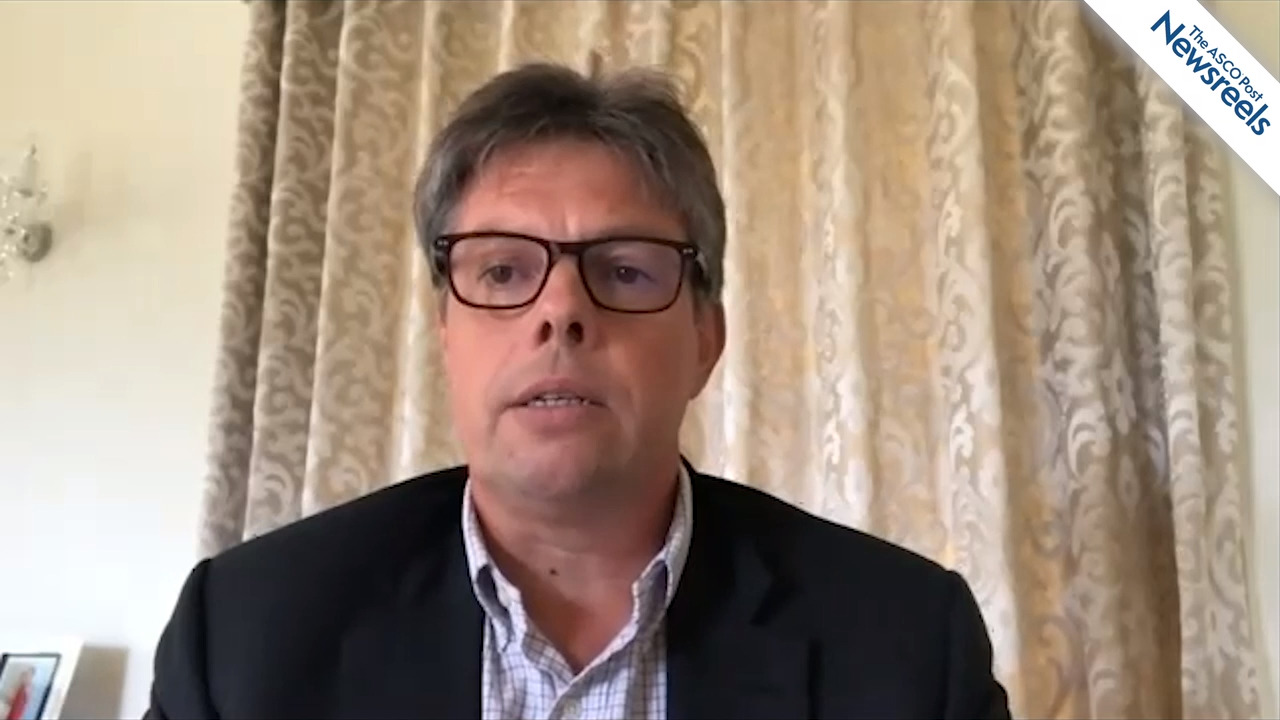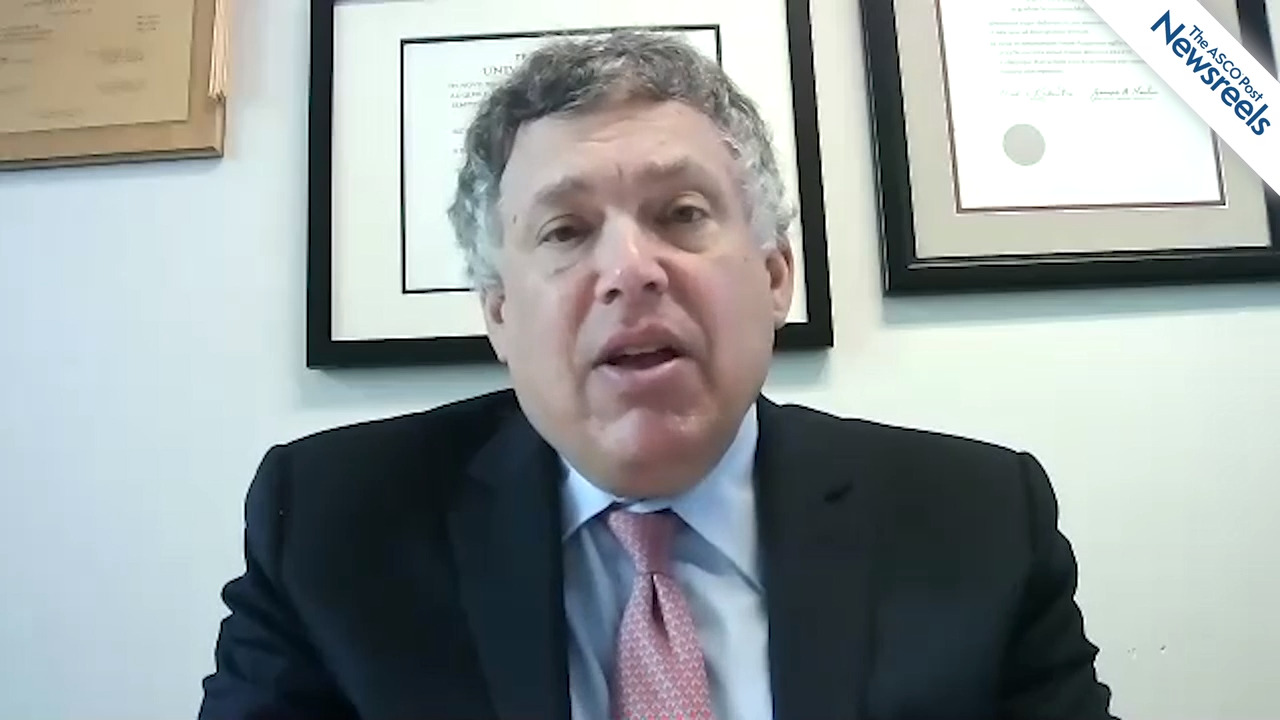Meletios A. Dimopoulos, MD, on Multiple Myeloma: Selinexor, Bortezomib, and Dexamethasone for Previously Treated Patients
ASCO20 Virtual Scientific Program
Meletios A. Dimopoulos, MD, of the University of Athens, discusses phase III results from the BOSTON trial, which showed that once-weekly selinexor, bortezomib, and dexamethasone significantly improved progression-free survival and overall response rates compared with twice-weekly bortezomib and dexamethasone in patients previously treated for multiple myeloma (Abstract 8501).
The ASCO Post Staff
Nancy U. Lin, MD, of Dana-Farber Cancer Institute, discusses the HER2CLIMB study of patients with previously treated HER2-positive metastatic breast cancer that had metastasized to the brain. Adding tucatinib to trastuzumab and capecitabine doubled the intracranial response rate and reduced the risk of death by nearly half, compared with trastuzumab plus capecitabine (Abstract 1005).
The ASCO Post Staff
David C. Fajgenbaum, MD, MBA, of the University of Pennsylvania, who trained as an oncologist, summarizes his opening lecture, a dramatic story of his battle against Castleman, a disease of the lymph nodes, his multiple near-death experiences, and the path that led him to develop a cooperative research effort making a difference for him and other patients with this idiopathic orphan illness.
The ASCO Post Staff
Suresh S. Ramalingam, MD, of Emory University, discusses a 3-year update from the CheckMate 227, Part 1, trial, which showed that nivolumab plus ipilimumab continued to provide durable and long-term overall survival benefit vs platinum-doublet chemotherapy as first-line treatment for patients with advanced non–small cell lung cancer (Abstract 9500).
The ASCO Post Staff
Christopher Nutting, MD, PhD, of the Royal Marsden Hospital and Institute of Cancer Research, discusses phase III results from the first study to demonstrate the functional benefit of swallow-sparing intensity-modulated radiotherapy in oro- and hypopharyngeal cancers (Abstract 6508).
The ASCO Post Staff
Roy S. Herbst, MD, PhD, of Yale Cancer Center, discusses data from the ADAURA study, which showed that compared with placebo, osimertinib as adjuvant therapy after complete tumor resection reduced the risk of disease recurrence or death by 79% in patients with non–small cell lung cancer (Abstract LBA5).
